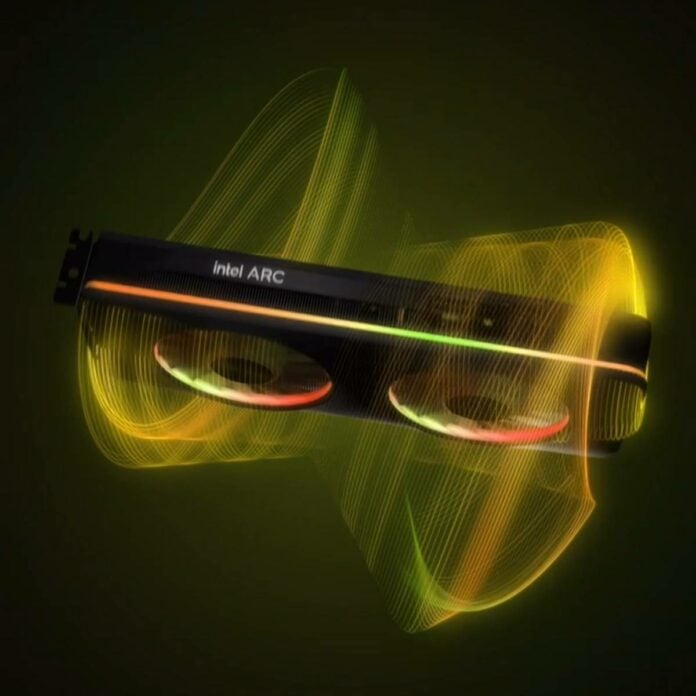Intel is seemingly set to launch its much-awaited Arc B770 GPU in two weeks during Computex 2025, potentially arriving in the next quarter. Despite earlier rumours suggesting B770’s cancellation, recent developments indicate that Intel is committed to expanding its GPU offerings. Unlocking more performance out of the brand’s Battlemage architecture, the B770 desktop graphics cards could land near Nvidia’s RTX 5060 Ti.
With rumours juggling between its demise and resurrection, plus the lack of any Intel insight into its development, B770 GPU fate remained in limbo, switching as leaks changed directions. The latest of these is once more claiming that this high-end Battlemage design is still planned, which is supported by a recent appearance in a shipping manifest. Though, note that the latter was marked as for R&D purposes, which is far from a final product. At least the GPU isn’t abandoned, even if its release will take longer.
B770 is anticipated to feature 32 Xe2 cores alongside 16GB of GDDR6 memory running on a 256-bit memory bus. This combo should deliver substantial improvements over B580 packing only 20 Xe2 cores and 12GB of VRAM. That said, don’t expect RTX 5080 or – even RTX 5070 – performance levels, as the target seems to be around Nvidia’s RTX 5060 Ti and AMD’s RX 9060 XT.
Even so, Arc B770 should be enough to handle 1440p gaming, albeit with some settings dialled down in modern AAA titles. Depending on its pricing, this GPU could help Intel claim some market share, challenging its well-established competitors in value. Assuming Intel does so, mid-range gamers could have a decent alternative to AMD and Nvidia that offers better bang for the buck.
Like its smaller siblings, B770 should be built on TSMC’s 5nm process, promising enhanced power efficiency, higher clock speeds, and new features. Notably, B770 should boast better ray tracing capabilities thanks to its higher XMX unit count, with each unit now supporting three traversal pipelines and improved intersection calculations, effectively doubling the performance compared to the previous generation. Upscaling solutions such as Intel’s XeSS 2.0 further augment these capabilities, introducing features like frame generation and low-latency technologies.
Production of B770 is reportedly underway at Intel’s Vietnam facility, with availability expected later this year. Pricing is projected to be between $350 and $450, positioning the B770 as an alternative to RTX 5060 Ti and AMD’s RX 9060 XT.


